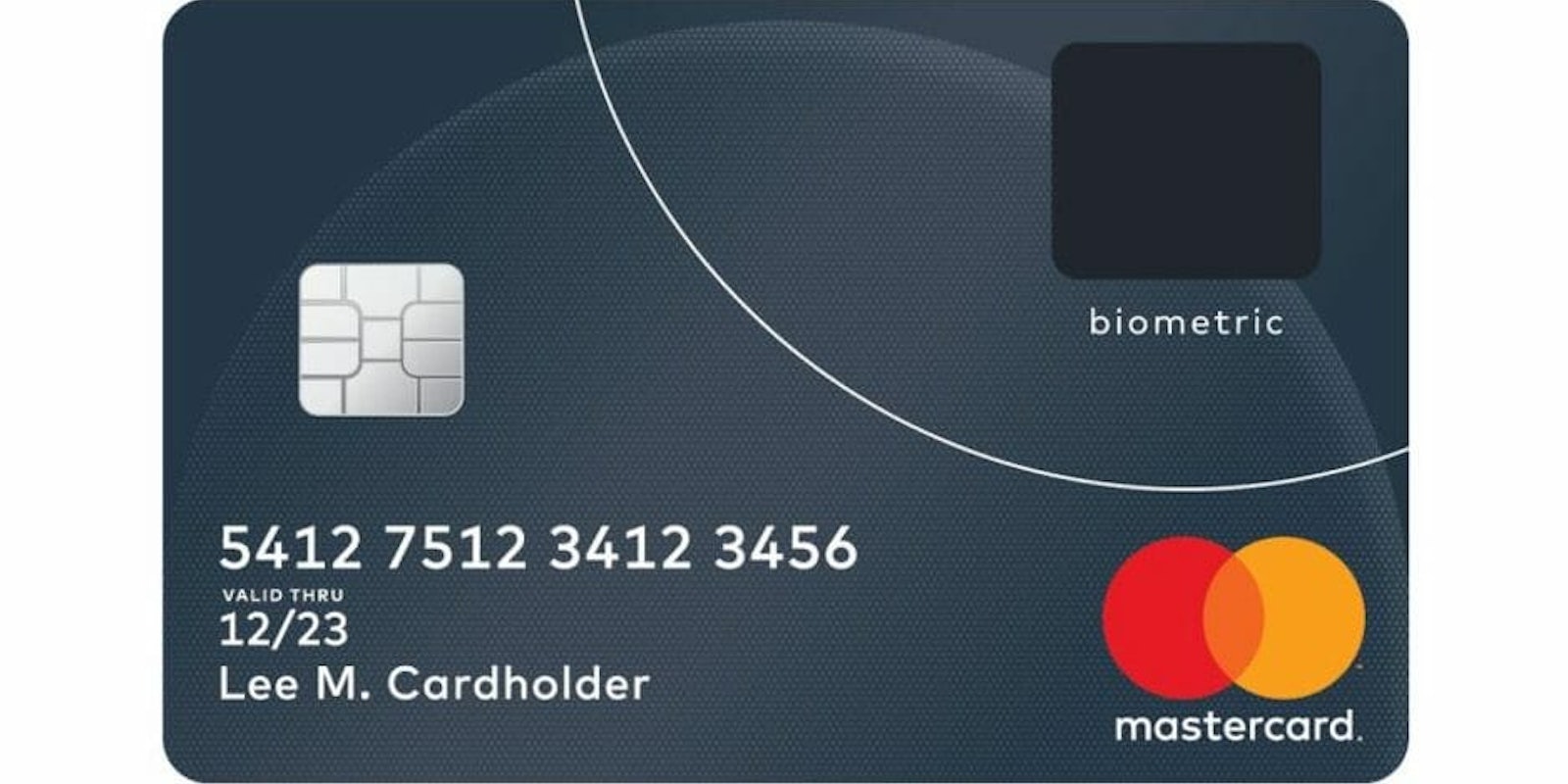Just like credit card readers replaced magnetic strips with chips to improve security after identity theft hit major retailers like Target, the way we authenticate transactions—either with a signature or PIN—needs to evolve. A major credit card company thinks it has the answer by using a technology already found on almost every new smartphone.
Mastercard built a credit card with a fingerprint scanner on the front, not unlike the iPhone 7. The company says the new card will be used to replace one’s signature or PIN for authorization, and is compatible with all chip-and-PIN readers (not magnetic strip-only cards).
It is not any thicker than current credit cards, and is said to work in the same manner. A cardholders just needs to dip (yes, dip) their card into a retailer’s machine while placing their finger on the embedded sensor. The unique pattern is scanned and identified to authenticate the identity of the card owner.
To receive one of these cards, you simply need to register your fingerprint with your financial institution. They will convert it into an encrypted template and store it on the card. Mastercard claims the biometic sensor will help “detect and prevent fraud, increase approval rates, reduce operational costs, and foster customer loyalty.”
“Whether unlocking a smartphone or shopping online, the fingerprint is helping to deliver additional convenience and security,” said Ajay Bhalla, president of enterprise risk and security at Mastercard. “It’s not something that can be taken or replicated and will help our cardholders get on with their lives knowing their payments are protected.”
The credit card company is trailing the new technology in South Africa, and will expand testing into Europe and the Asian-Pacific region in the next few months. The new credit cards are expected to roll out later this year.


